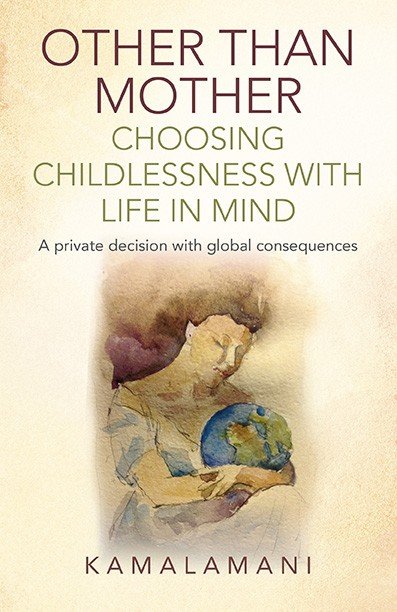Consciously choosing childlessness
new book and interview by Kamalamani

In my late teens and early 20s I used to say that I would have children by the time I was 30. It was only on a Going for Refuge retreat at Tiratanaloka (in Wales) when I was 27 that I realised child-bearing wasn’t - and isn’t - compulsory. This realisation encouraged me to think and reflect carefully about the pro-natal nature of our conditioning as girls and young women. I decided to sit with the decision not to have children, just for a year, ‘trying it for size’, as it were.
My 30th birthday came and went, and I was happily without child, engaged in the ordination process, and spending my time between England as a university lecturer and sub-Saharan Africa as a development worker. As both my Dharma practice and ecological awareness deepened, particularly inspired by the Bodhisattva ideal, it became increasingly clear to me that I wouldn’t be becoming a mother after all. I wanted to live creatively, without creating an earthling, a nurturing woman without becoming a mother. When I failed to find the book I was seeking, affirming my decision and supporting this going forth, I realised I would have to write one! Fourteen years later, here we are…
Choosing to have children is a private decision with global consequences. The new book titled "Other Than Mother" by Kamalamani explores the decision-making process around not having children. It is in three parts:
Part I The Worldly Winds explores the backdrop to deciding whether or not to have children, including the cultural changes brought about by a rise in voluntary/intentional childlessness.
Part II A Private Decision with Global Consequences explores the pros and cons in the decision-making process, including ecological and environmental considerations.
Part III New Horizons and Baby-sized Projects explores living with the decision.
Kamalamani’s exploration of issues around consciously choosing childlessness as an ethical move is both fascinating and challenging. The context of unbounded compassion for all beings is vital and animates an issue we all face in our lives as human beings coming to terms with an over-populated world.
Watch this interview of Kamalamani or order her book online.